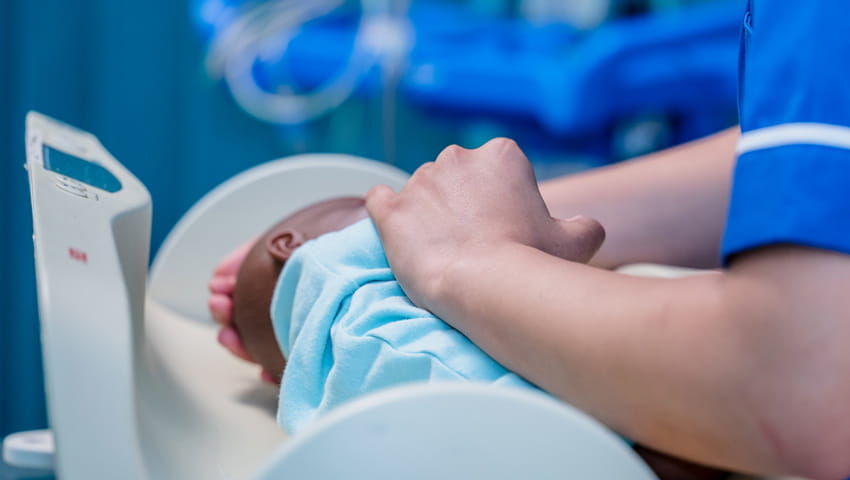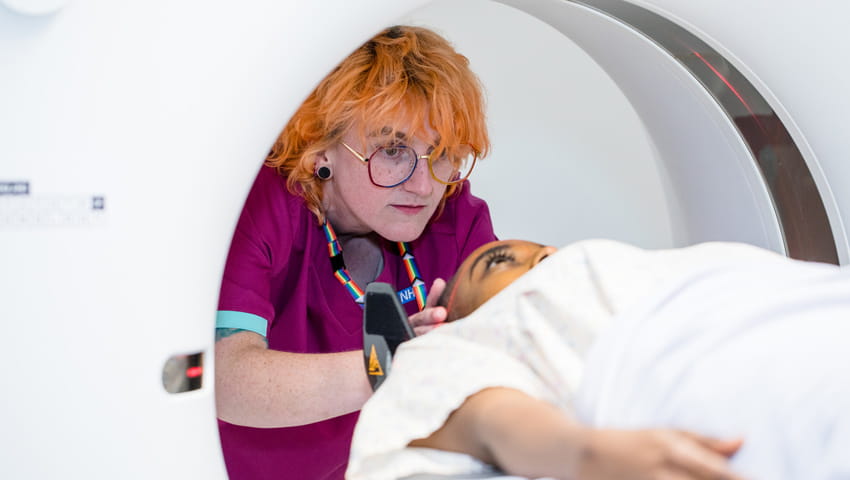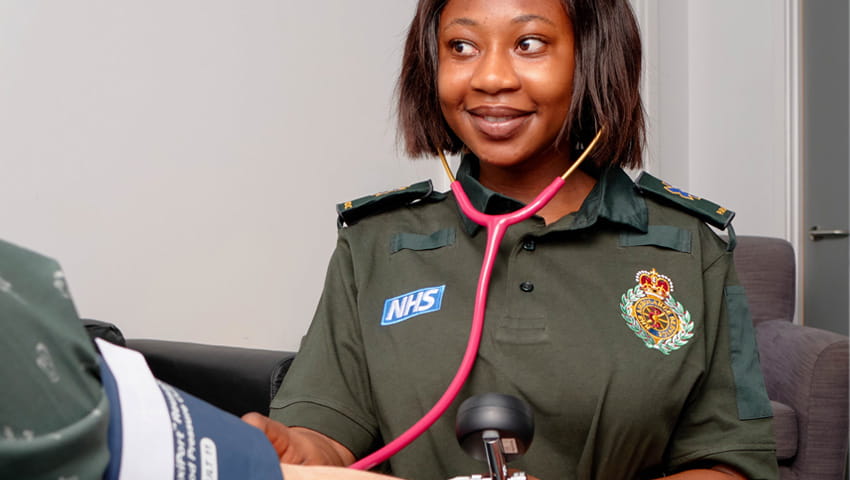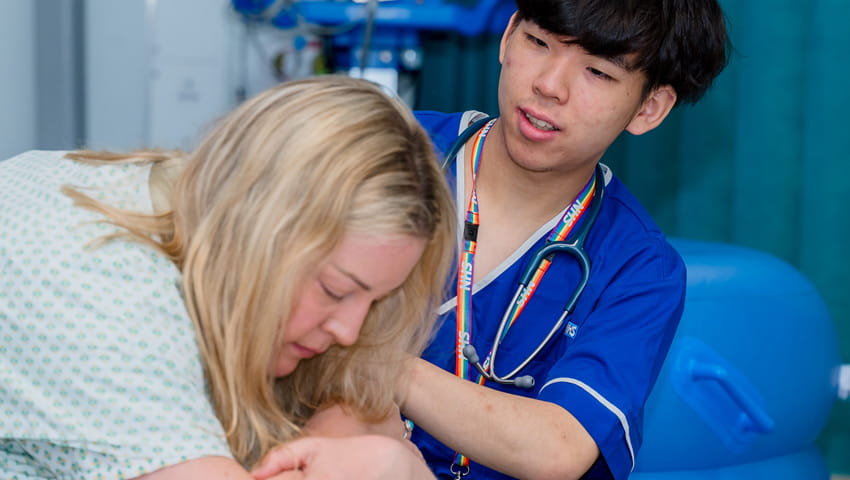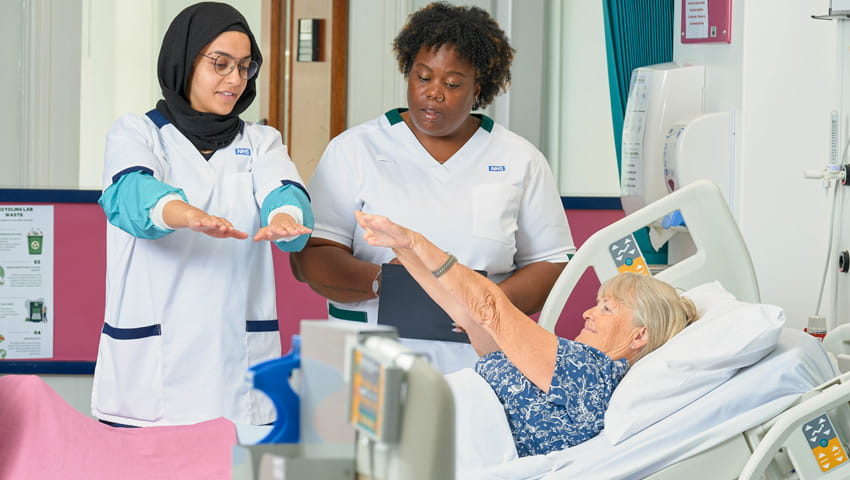Reframe: Diverse images for healthcare
A project to increase visual representation of marginalised groups in healthcare images.
Background
The aim of the Reframe project is to increase the visual representation of marginalised groups (e.g. Black, Asian and global majority, LGBTQIA+ and people with disabilities) in healthcare images.
There are two strands to this project:
- Medical conditions often appear differently based on skin tone, but many healthcare images primarily feature lighter skin tones. This can lead to misdiagnoses for those with darker skin. To address this, we’ve captured images of conditions like eczema, psoriasis, and jaundice across a range of skin tones.
- The second strand focuses on representing diversity within images of the healthcare workforce, because marginalised groups such as disabled individuals, the LGBTQIA+ community, and people from different ethnic backgrounds are underrepresented.
This resource will play a vital role in helping healthcare professionals and educators reduce health inequalities.
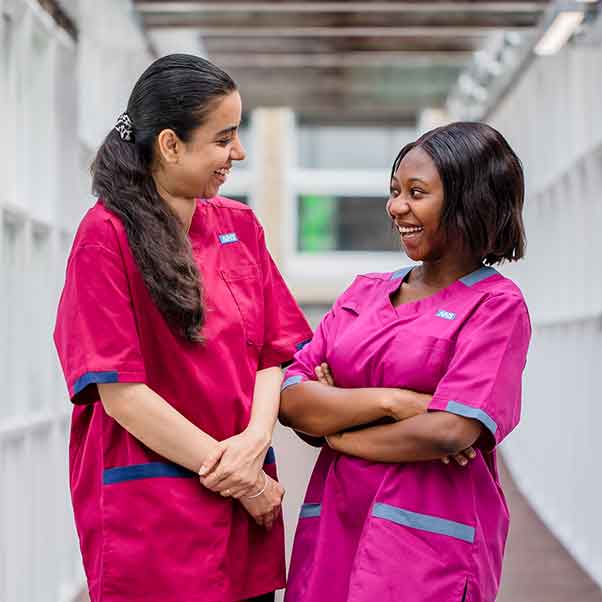
"Since its launch, the project has made significant progress capturing a diverse range of medical conditions and healthcare professionals. This couldn’t have been done without the support and commitment from key communities and organisations."
Debbie Hubbard Associate Director at UWE Bristol and Project Lead
About the project
The project aims to address the significant lack of visual representation and diversity in healthcare images, particularly for individuals from marginalised communities.
The project's objectives are:
- To photograph a wide range of medical conditions on diverse skin tones, creating a more comprehensive and inclusive visual representation.
- To photograph individuals from underrepresented communities, including Black, Asian, and global majority populations, LGBTQIA+ individuals, and people with disabilities, in various healthcare settings.
- To co-produce an open-access, digital library of images that's accessible to everyone, providing a valuable resource for medical professionals, educators, and the public.
Progress and achievements
Since its launch 18 months ago, the project has made substantial strides toward achieving its goals. During this time, the team has conducted six community photoshoots, involving a diverse range of participants. These events, carried out in collaboration with key communities, aimed to capture the nuances of various medical conditions across different skin tones.
The project has also successfully partnered with two GP surgeries, Lawrence Hill Health Centre and Horfield Health Centre, where two additional photoshoots were conducted, contributing to a growing collection of medical images.
In total, the project has photographed over 120 individuals as part of its first strand. Additionally, 38 participants from Black, Asian, global majority, LGBTQIA+, and disabled communities have been photographed in healthcare settings, contributing to the second strand. Together, these efforts have produced over 2,000 photographs, creating a rich repository of inclusive imagery.
In terms of partnerships, the project has formed valuable collaborations with organisations such as the British Skin Foundation. It's also in the process of establishing partnerships with the British Association of Dermatologists and the UK Health Security Agency. These collaborations are vital for expanding the reach and impact of the project and ensuring that the final image library is robust, accurate, and widely recognised.
Next steps
As the project enters its final six-months, the focus is shifting toward achieving the third objective—creating and launching a free, open-access digital library of images. This phase is critical for ensuring that the project's work is accessible to healthcare providers, educators, and the public at large. To achieve this, the following key activities will be prioritised:
- Development of an Asset Management System: A robust system will be designed to catalogue and manage the extensive collection of images.
- Content uploading and system testing: Images will be systematically uploaded, and the system will undergo testing to ensure functionality, accessibility, and a user-friendly interface.
- Marketing and launch: A comprehensive marketing strategy will be developed to promote the launch of the digital library, ensuring it reaches its intended audience and fulfils its role as a valuable healthcare resource.
Community engagement and collaboration
A key factor in the project's success to date has been its commitment to community engagement and collaboration. From the outset, the team has worked closely with key communities, gathering feedback on everything from marketing materials to event promotion. This approach ensures that the project not only meets its objectives but also reflects the voices and needs of those it aims to serve.
"The Reframe team work tirelessly to enable students, healthcare professionals, educators and the public gain access to free, downloadable, quality, verified images of clinical conditions on black and brown skin. This project aims to support the reduction of health inequalities. "
Sarah Todd Senior Responsibility Officer, NHS England
Reframe project gallery
Meet the project team
-
 Debbie HubbardAssociate Director and Project Lead, UWE Bristol
Debbie HubbardAssociate Director and Project Lead, UWE Bristol -
 Sarah ToddSenior Responsibility Officer, NHS England
Sarah ToddSenior Responsibility Officer, NHS England -
 Dr Puspa PantProject Officer, UWE Bristol
Dr Puspa PantProject Officer, UWE Bristol -
 Simon BrinkworthHead of Medical Illustration, University Hospitals Bristol and Weston Foundation NHS Trust
Simon BrinkworthHead of Medical Illustration, University Hospitals Bristol and Weston Foundation NHS Trust -
 Alice KennySenior Clinical Photographer, University Hospitals Bristol and Weston Foundation NHS Trust
Alice KennySenior Clinical Photographer, University Hospitals Bristol and Weston Foundation NHS Trust -
 Brodie GoodallCreative Communications Officer, UWE Bristol
Brodie GoodallCreative Communications Officer, UWE Bristol -
 Wemi AjalaGlobal Majority student advocate, UWE Bristol
Wemi AjalaGlobal Majority student advocate, UWE Bristol -
 Ann-Marie HinesPublic participant
Ann-Marie HinesPublic participant -
 Maddie PuckeyMarketing Officer, UWE Bristol
Maddie PuckeyMarketing Officer, UWE Bristol

